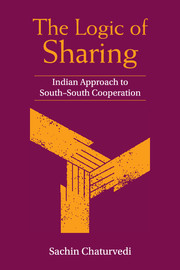Book contents
- Frontmatter
- Contents
- List of Tables and Figures
- Foreword
- Preface
- List of Abbreviations
- Section I Policy and Institutional Framework
- Section II Country and Regional Case Studies
- Section III Summing Up
- 8 The SSC and Global Imperatives
- 9 Expanding Frontiers, New Trends and the Way Forward
- Bibliography
- Index
8 - The SSC and Global Imperatives
from Section III - Summing Up
Published online by Cambridge University Press: 05 March 2016
- Frontmatter
- Contents
- List of Tables and Figures
- Foreword
- Preface
- List of Abbreviations
- Section I Policy and Institutional Framework
- Section II Country and Regional Case Studies
- Section III Summing Up
- 8 The SSC and Global Imperatives
- 9 Expanding Frontiers, New Trends and the Way Forward
- Bibliography
- Index
Summary
The process of decolonisation began soon after the end of World War II and India was one of the first countries to gain independence. Many other developing countries that gained independence in the 1950s and 1960s faced a common problem: to eradicate poverty and bring the fruits of economic and social development to their people. It was this shared challenge that inspired early initiatives to promote SSC. India was one of the leaders of this movement, which essentially was based on Third World solidarity. Countries of the developing world not only cooperated in sharing their modest capabilities and resources with each other on the basis of mutual benefit, but also created forums through which they could work to create a more level playing field from which to promote their interests in the international economic order. The NAM became an influential vehicle for that purpose while the G-77 emerged as a key grouping of developing countries that worked on promoting the economic and trade interests of developing countries at the UN and in negotiations with the economically developed countries of the West. The G-15 was formed by NAM as a means of engaging the G-7 developed countries in a dialogue over reform of the international economic order. Nevertheless, while initiatives of this kind were successful in achieving some benefits for the developing world the essential structure of the global economy stayed mostly unchanged and the demands of NAM and the G-77 remained in the realm of rhetoric. There was certainly some progress in promoting economic cooperation among developing countries but it was limited in both scope and scale. The SSC could serve only as a modest supplement to the much more important role played by the ODA bilaterally as well as multilaterally, from developed to developing nations.
With the end of the Cold War around 1990, NAM itself lost much of its traction. The sense of solidarity that marked its early years became less evident as conflicts between the developing countries themselves became more numerous and frequent. There was also a growing divergence in the rates of development achieved by different countries. The oil crisis of the early 1970s paved the way for the emergence of a group of affluent oil-exporting countries that had little in common with the majority of poorer nations.
- Type
- Chapter
- Information
- The Logic of SharingIndian Approach to South–South Cooperation, pp. 177 - 188Publisher: Cambridge University PressPrint publication year: 2015



